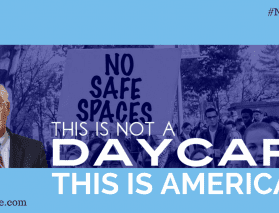It’s bitter sweet really, that feeling you get when you come home from a long trip. On the one hand, it’s good to be home in familiar surroundings and to get incredibly awesome hugs from each of our six kids.
On the other hand, we had a blessed time with friends in Guam, making new ones and becoming better acquainted with others. My wife enjoyed her time on a tropical island — and has the tan to prove it. I did too.
And the food — well, let’s just say Guam knows food.

So it’s with mixed emotions that I try to collect my thoughts from the journey of about 18,000 miles over the last two weeks that took us to Tokyo first and then into Guam. I added a little detour to Saipan for a day with some friends. Then back to Tokyo, on to Chicago, and finally home to Chardon, Ohio.
As I reflected on the many conversations and experiences of the trip, I jotted down 10 lessons from the other side of the world that I thought were worth sharing. Here they are, for what they’re worth.
- No one takes North Korea’s threats seriously except the Western media. I’m not saying we shouldn’t pay attention when deranged dictators say crazy stuff, but the consensus of all I interviewed in Guam was that there was little to nothing to worry about. One person had just been to the DMZ with a group of school children and found that South Korean troops were not even on high alert. All seemed to see the saber-rattling as attempts to extort more stuff from the West. To his credit, I think, the Obama administration didn’t give in, leaving Kim Jung-un in a rather awkward position.
- The consensus of all I talked to in Guam, a territory of the United States, was that US influence is fading rapidly. In their opinion, Asia, specifically the Pacific Rim area, will be the center of cultural and economic influence and innovation in the decades to come. Some of that perspective may reflect bias on their part, of course, but I think they are on to something worth watching closely. America has grown soft and bloated, failing to recognize the implications of a flattened, and therefore highly competitive, world.
- Guam is a better place to raise children than the mainland US. Such was the opinion of several families who had lived in the States before relocating to Guam. The word that was used a lot was “safer” to describe Guam as compared to even the heartland US mainland. I’m convinced part of that is the emphasis on family and community that runs deep in Guam. As the Asian and western cultures have blended there, they have managed to maintain strong familial and community networks rather than defaulting to the government. That being said, other islanders flocked to Guam after the late 1990s when welfare options opened up to them. Like the mainland, Guam carries its fair share of off-islanders who have learned how to work the system to get a free ride.
- China has irreconcilable differences within itself. The tension between the communistic political system and the burgeoning capitalistic economic system cannot peacefully co-exist. They have created a middle-class which is irreconcilable with communism. The consensus of many in Guam who do business regularly in China is that already there are signs that — surprise! — the money will win. And communism will eventually lose.
- In Guam, Ohio is irrelevant. The simple truth struck me when I looked at a map in one of the local churches. It showed Guam at the center with various mission spots highlighted. It struck me, in a sobering moment, that Ohio was not even visible on the map. The center of my little universe didn’t even show up on their map at all.
- Americans are loud. All throughout our stay, we were struck by the quiet. As Caucasian Americans in Guam, we were the odd couple in this prime Japanese tourist spot. We didn’t really notice the quiet much until a handful of other Americans showed up here and there. The difference in volume was jarring. I would even use the word obnoxious to describe them. As it happened, my wife was reading Susan Caine’s book Quiet: The Power of Introverts in a World That Can’t Stop Talking
so the contrast between introverts and extroverts was even more pronounced in our minds. As we made our way back to Chicago, the volume increased dramatically, so much so that we found ourselves wincing at O’Hare at the deafening decibel levels.
- Seven hours in Saipan reminded me that wealth is fleeting and poverty, for much of the world, is the norm. I took a day trip up to the island of Saipan. Not too many years ago, they were rolling in money, cranking out clothes for Western manufacturers. Then China happened. Now the factories and sweatshops are abandoned. Malls, once glittering, first-class tourist destinations, lie crumbling. Buildings dot the island that were begun, but left half-finished when the economic tide turned. It all reminded me of that scene from the James Bond movie Skyfall where an entire island had been abandoned. A few gilded resorts are still on the island — right next to images of poverty and hopelessness.
- Time changes everything. Whether it was on the beach at Asan in Guam where US Marines invaded to retake the island from the Japanese or overlooking the Banzai Cliff in Saipan where countess Japanese chose suicide over capture by US forces, I was struck by the simple fact that I was standing at those sites reflecting on the historic events — right next to Japanese tourists doing the same thing. And there was no animosity between us. In fact, I enjoyed my limited interactions with Japanese tourists throughout our stay. So many lives lost. So much destruction. And now we stand, and sit, and eat together.
- Obamacare is bad law. The whole world knows it. During my stay, I was able to talk to a few business people heavily involved in health-care both in the US and abroad. Without betraying confidences, suffice it to say that all share the opinion that Obamacare is a horrible law with staggering implications just now beginning to be realized. Jobs will be lost. Companies closed. Ironically, the consensus was that Obamacare is eliminating the little guy and consolidating power in big corporations through stifling regulations. I say ironically, because Obama claimed he was all about helping the little guy. Apparently, some people actually believed him.
- People are the same no matter where you go. Kids are the same, too. As I observed many families from different cultures, I was struck not by our differences, but by how much we had in common. I saw the same child/parent dynamics unfolding, though in different languages than my own. When I spoke with school chapel sessions, the students behaved exactly like students do here in the US. A good reminder for all those times I am convinced that the “other” people are different from me in some substantial way. Christ died for each of them just like He died for me, though I am quick to forget it.
Well, that’s a quick recap of lessons learned from the other side of the world. I’m sure I have more to sort through, but what do you think of the lessons I learned so far? Do they align with ones you have learned from your own travels abroad? Any surprises? What matches and what doesn’t?











